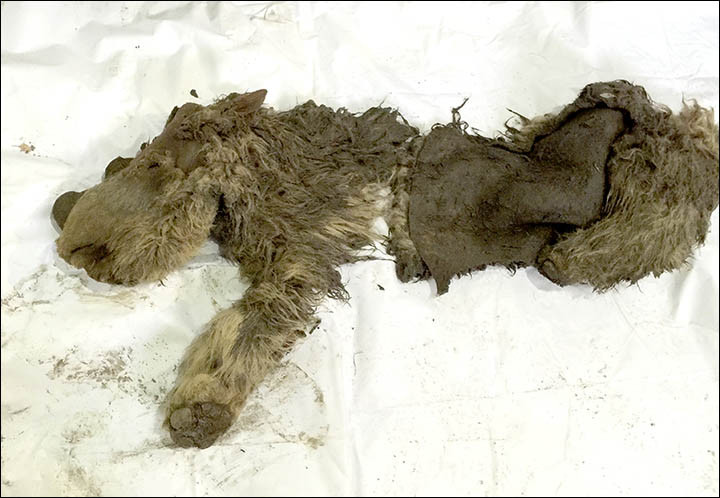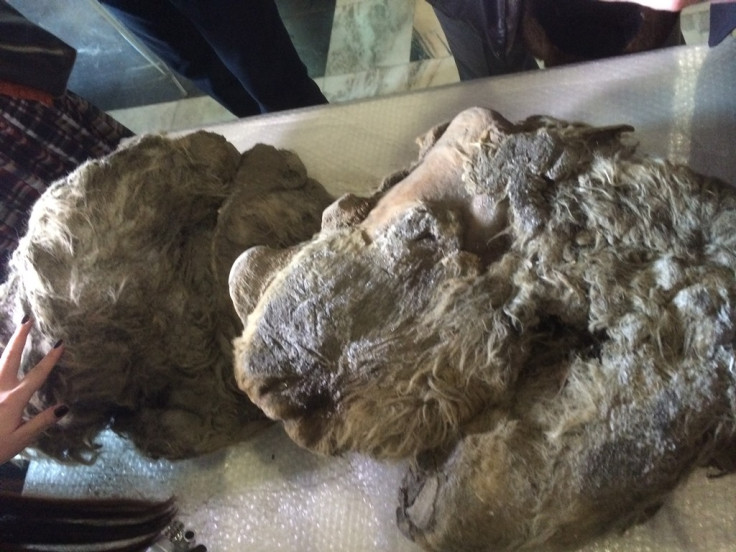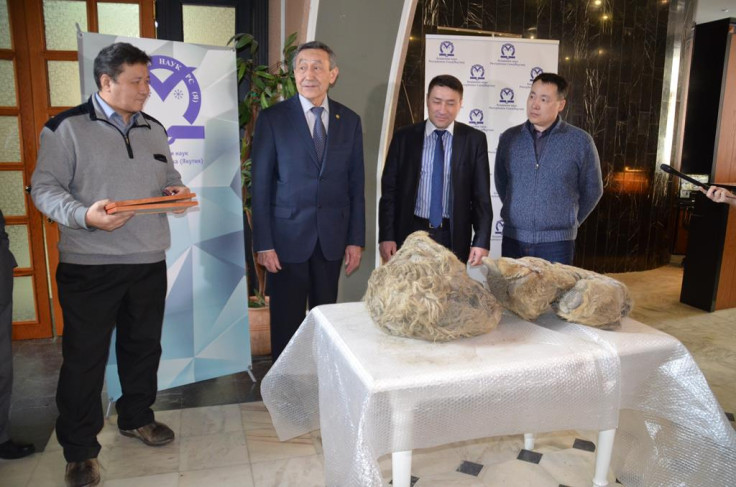World's first baby woolly rhino pulled from the Siberian ice

The world's first baby woolly rhino has been discovered in Siberia, being pulled from the ice in Yakutia with well-preserved eyes, teeth, ears, hooves and horns.
Presented by the Academy of Sciences of the Republic of Sakha (Yakutia), the find was described as "sensational" and experts hope to extract DNA from the remains to study it further.
The age of the cub, which has been called Sasha, is yet to be firmly established. Researchers believe it was about 18 months when it died. They say it probably fell into a pit, with part of the carcass having been eaten by wild animals – there are teeth marks visible on the skin.
Of the remains, the creature's wool has been preserved, as well as one eye, one ear, its nostril and mouth. Two horns were also found on the carcass.
Woolly rhinos lived in Europe and Northern Asia during the Pleistocene Epoch. They went extinct about 10,000 years ago – about the same time woolly mammoth populations began to seriously decline. However, unlike the woolly mammoth, specimens of woolly rhinos are extremely rare.

Albert Protopopov, Head of the Mammoth Fauna Department of Sakha Republic Academy of Sciences, told Siberian Times: "The find is absolutely unique. We can count a number of adult woolly rhinos found around the world on fingers of one hand. A baby rhino was never found before.
"We know nothing about baby rhinos. Even to find a skull of a baby rhino is very lucky indeed.So far we didn't have a chance to work even with a tooth of a baby rhino, and now we have the whole skull, the head, soft tissues, and well preserved teeth.

"We are hoping Sasha the rhino will give us a lot of answers to questions of how they grew and developed, what conditions they lived in, and which of the modern day animals is the closest to them."
Igor Kololeznikov, president of the Yakutia, congratulated the researchers on the find and said the north-east of Russia is a truly unique global pantry of fossils of animals that roamed the planet hundreds of thousands of years ago.
© Copyright IBTimes 2025. All rights reserved.






















